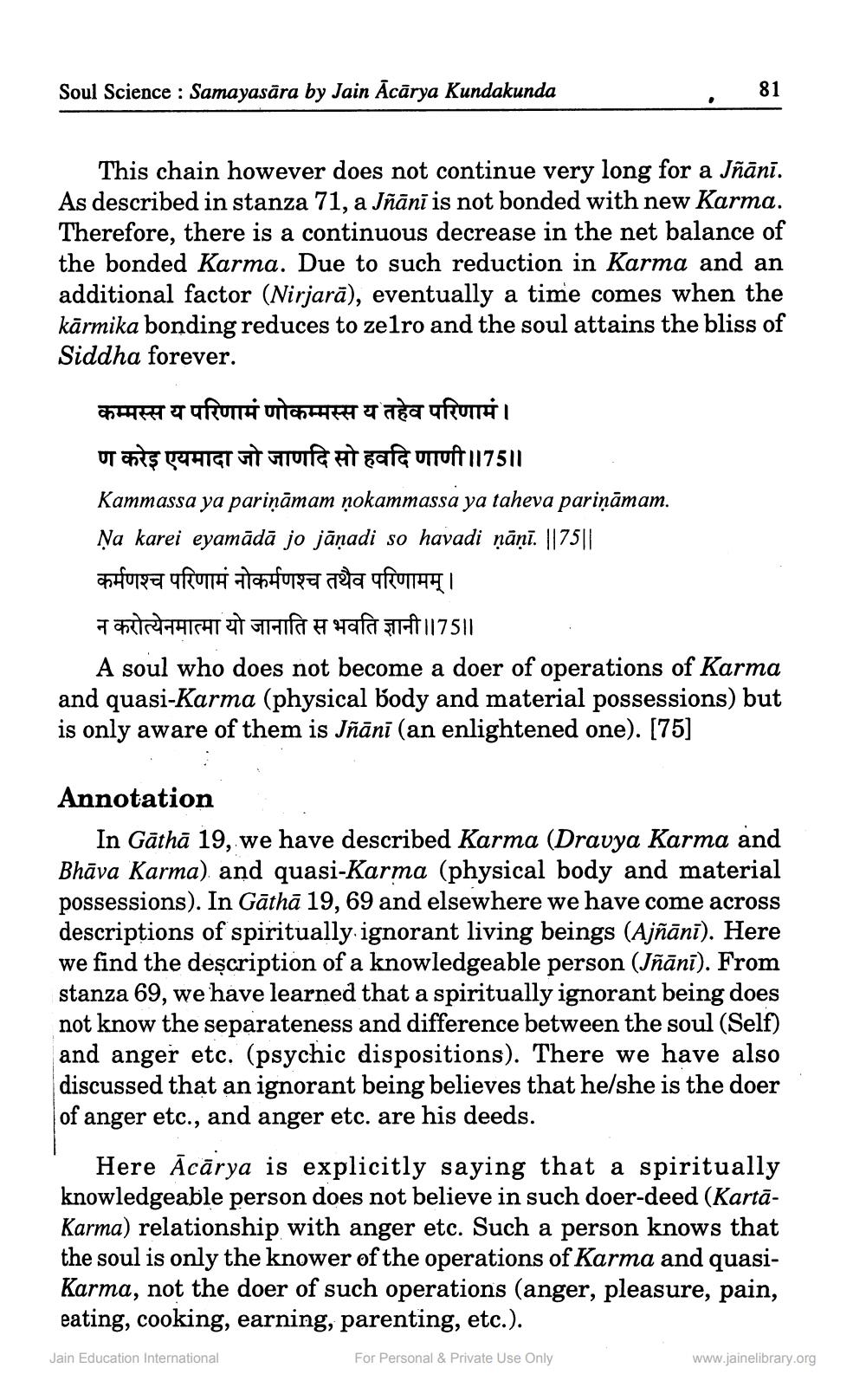________________
Soul Science: Samayasāra by Jain Ācārya Kundakunda
81
This chain however does not continue very long for a Jñānī. As described in stanza 71, a Jñānī is not bonded with new Karma. Therefore, there is a continuous decrease in the net balance of the bonded Karma. Due to such reduction in Karma and an additional factor (Nirjarā), eventually a time comes when the karmika bonding reduces to zelro and the soul attains the bliss of Siddha forever.
कम्मस्स य परिणामं णोकम्मस्स य तहेव परिणामं ।
UT ONG QUIHIGI VÌ TUIG RT Cafe UIÊN ||75||
Kammassa ya pariņāmam nokammassa ya taheva pariņāmam.
Na karei eyamādā jo jāṇadi so havadi ṇāṇī. ||75||
कर्मणश्च परिणामं नोकर्मणश्च तथैव परिणामम् ।
करोत्येनात्मा यो जानाति स भवति ज्ञानी ॥ 75||
A soul who does not become a doer of operations of Karma and quasi-Karma (physical body and material possessions) but is only aware of them is Jñānī (an enlightened one). [75]
Annotation
In Gāthā 19, we have described Karma (Dravya Karma and Bhāva Karma) and quasi-Karma (physical body and material possessions). In Gāthā 19, 69 and elsewhere we have come across descriptions of spiritually ignorant living beings (Ajñānī). Here we find the description of a knowledgeable person (Jñānī). From stanza 69, we have learned that a spiritually ignorant being does not know the separateness and difference between the soul (Self) and anger etc. (psychic dispositions). There we have also discussed that an ignorant being believes that he/she is the doer of anger etc., and anger etc. are his deeds.
Here Acarya is explicitly saying that a spiritually knowledgeable person does not believe in such doer-deed (KartāKarma) relationship with anger etc. Such a person knows that the soul is only the knower of the operations of Karma and quasiKarma, not the doer of such operations (anger, pleasure, pain, eating, cooking, earning, parenting, etc.).
For Personal & Private Use Only
Jain Education International
www.jainelibrary.org




